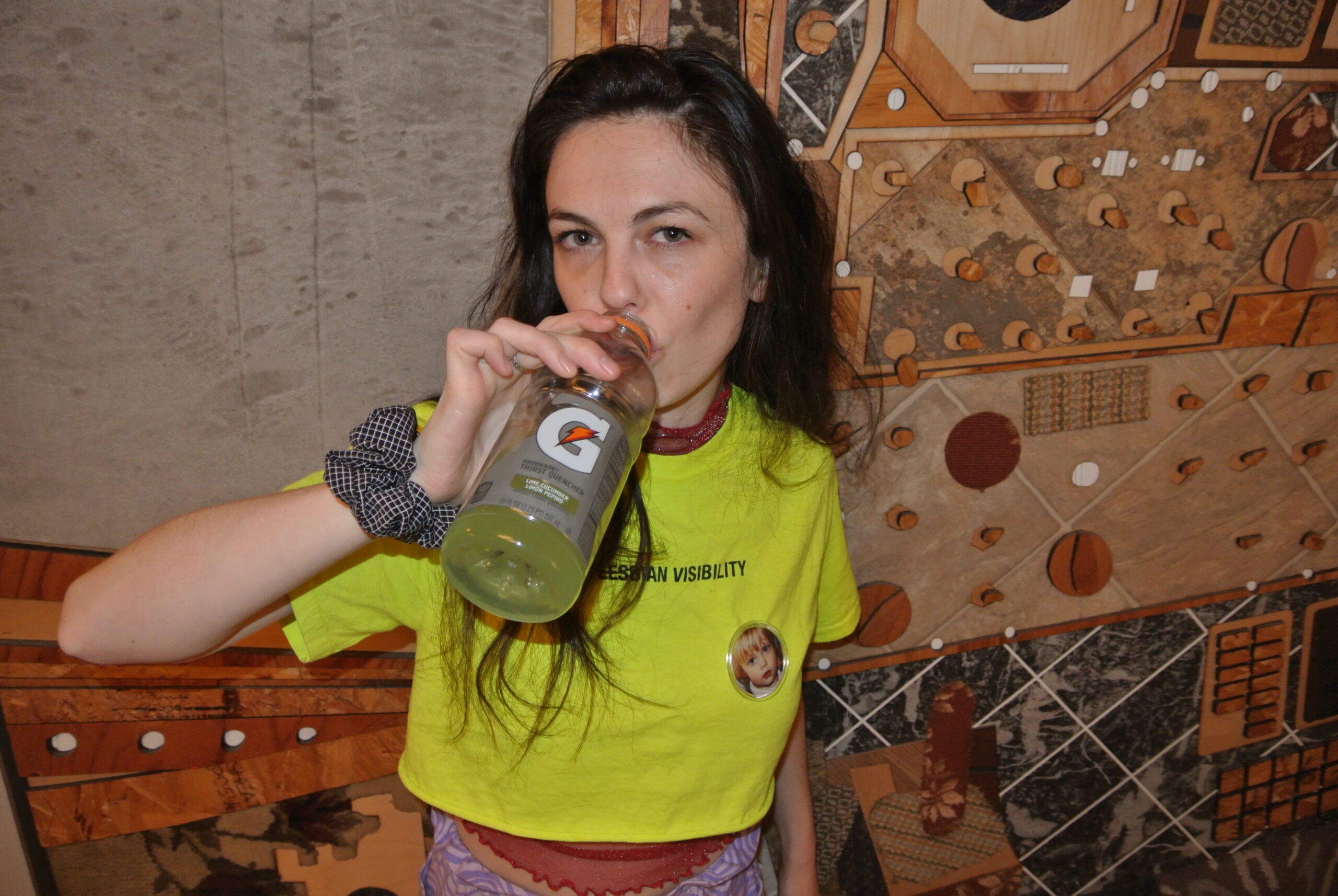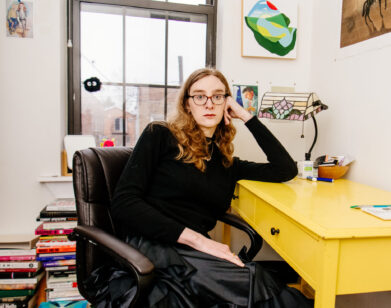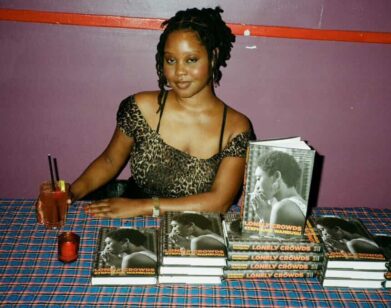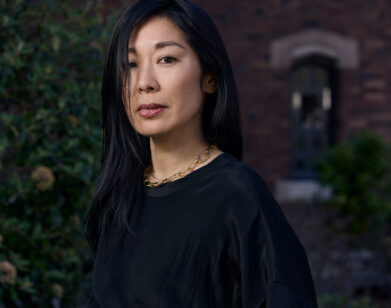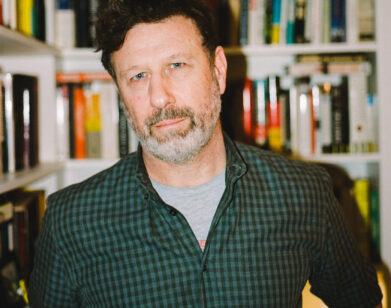LIT
Couplets Author Maggie Millner Can’t Help But Break the Rules
I first encountered Maggie Millner while crammed into the back of a reading at NYU. The acoustics in the room weren’t great, but she read with the kind of presence that carried to my far corner of the West Village brownstone. Millner was reading a new piece, which she casually described as a “work in progress,” free-verse and analytical, interweaving references to film theory with a direct and personal narrative about friendship. Her debut book, Couplets, out in paperback next month, is on its surface truly regulated by poetic convention. It’s written mostly in rhyming couplets, though it forays into prose poetry. Millner, as she told me on Zoom last month, is “temperamentally compelled” to break the rules. True to form, the subject matter of Couplets reveals the title to be a twisted pun. The momentum of Millner’s rhyme drives forward a narrative of coupling and uncoupling, as its young female speaker leaves her long-term boyfriend for a first-time girlfriend who happens to have another girlfriend. Its protagonist oscillates between moments of intense clarity and bewilderment. After devouring her book in the space of a single evening, then re-devouring before out interview, Millner and I discussed poets as loners, poets as liars, and our mutual affinity for Prospect Park.
MAGGIE MILLNER: Thank you so much also for talking to me.
JULIETTE JEFFERS: Oh, I’m excited to talk to you. I was actually at your reading at NYU and I loved it.
MILLNER: Really?
JEFFERS: Yes, and you read a new piece about friendship. The part that stuck with me most was this idea that friendship is transgressive because society doesn’t ascribe it any rules. You didn’t fully agree, and I’m not sure if I fully agree either. Well, Couplets is definitely not about friendship but it is about rules, and breaking rules. But it’s written in a really strict form. What drew you to those constraints?
MILLNER: I’m someone who’s very preoccupied by rules. In my life, I’m historically and temperamentally compelled to break them. That’s always been a core, instinctive part of my identity. When I was writing Couplets, so many of the rules that had given structure to my life up until that point suddenly didn’t seem to apply. I had in some ways extricated myself from a world where those rules and norms dominated and really mattered. In the absence of those kinds of inherited structures, I was really casting about for other kinds of structures and other systems of rules that I could break, that I could also experience through breaking. You really know the rules are there when you come up against them. You really experience yourself as the agent of your life when you feel yourself making choices that are perhaps against or orthogonal to the rules. The version of myself in Couplets is in some ways addicted to that feeling of agency. Having rhyme and having some metrical constraints and things like that became really helpful because then I could re-indoctrinate myself into that way of thinking, and then also depart from it in these very dramatic and deliberate ways. I’m now writing in what seems to be free verse. When you put yourself through any kind of real rigorous training in prosody or in the rules of rhyme and meter and syllabics, it does linger. Sometimes, when I actually parse a sentence I’ve written, the sentence is in perfect iambic pentameter. I feel silly quoting from this, but there’s a really good T.S. Eliot essay on this exact thing. Even when you stop writing according to iambic pentameter, he says, it “should lurk behind the arras”—like, the tapestry—of the verse. It’s still interwoven into the tapestry of the verse, in other words, whether you’re conscious of it or not. With what I’m working on now, friendship seems to me to be a space where, because the rules are not being handed down by or regulated by the state, or even conventions of property or of partnered romance, those relationships still have all these rules and conventions that come with them because culture is organized around privileging those structures.
JEFFERS: Friendship is free verse.
MILLNER: Exactly.
JEFFERS: And that’s true because even in friendship, you still internalize all of the other relationship rules that are handed down to us by the state or by family structures. Like you say, “Oh, this person is like my sister,” or “This is my wife.”
MILLNER: Yeah, “My work wife.”
JEFFERS: We don’t really know how to even talk about friendship without evoking those structures.
MILLNER: I think that’s absolutely right. Friendships can have different eras. There can be moments of estrangement or there can be moments of intimacy, but that also normalizing the ebbs and flows of those relationships over time is difficult, given our lack of vocabulary for them.
JEFFERS: Sometimes you become very intimate in a friendship with someone very quickly, and it’s intense, and then that intensity doesn’t last. We don’t have language for that, though the piece that you read was starting to put language to that.
MILLNER: This is maybe a hokey thing to say, but the lack of structure and language around what is permissible in friendships does have some similarities with queerness. It is this improvised kind of relationship. One thing I’ve realized is, I grew up and had very, very few friendships in my life until college. I had basically one friend growing up, and my childhood was very, very lonely. I think that’s why I became a writer.
JEFFERS: Every poet is like, “I was a really lonely child.”
MILLNER: I really was. I just really, truly did not fit in in the place that I’m from. I’m from a very rural place. And I went to a one-building, rural public school K through 12. I knew the same 40 people for my entire life. Nobody left the community that much. I really just didn’t have much intimacy and I didn’t have many friendships at all. Even with my best friend growing up, she had sisters and I didn’t have siblings my age. So I always felt that I was very intense. She was always putting boundaries up in our friendship, which I wanted to be boundaryless. I didn’t have really close friendships in multiple until I got to college.
JEFFERS: Wow.
MILLNER: Those friendships that I formed in college were with this group of people who I still think of as the bedrock of my social life. And at this point, those relationships have become almost more familial just because of how baked into my life and identity they feel, and because of the things we’ve experienced together. And partly it’s because this person who was at the nucleus of our friend group died very tragically. I think that also really changed our levels, or just maybe underlined our commitments to each other. But it’s also been a long time since college. Part of what this poem that I’m working on is about is just how to make accommodations for the natural ebbs and flows of those relationships while being as loving as possible and holding maybe tightly with one hand and sort of loosely with the other.
JEFFERS: You have this really interesting moment in Couplets where you say “Lust to me was wanting to transgress beside another, to be so totally compelled to share a truth that you have to lie to tell.” To me, that feels like this Ars Poetica moment. I was thinking about Anne Carson so much when I was reading your book. But there’s this part of The Beauty of the Husband where she references Plato saying that all poets are liars.
MILLNER: Plato had a theory that poets should probably be banished from society. We’re liars because poets have some kind of constitutional resistance to the laws that structure society.
JEFFERS: Totally. This idea of you want to transgress beside another seems to relate to how, in writing, you get to transgress alongside the reader. They get to be party to your confession, but you get to obscure it in a way, too.
MILLNER: That’s so beautiful. When people ask about fiction versus nonfiction or lying versus truth-telling, part of what’s so exalted to me about poetry is that it’s not a genre. Genres comprise things like novels or memoirs. There’s nothing hard and fast about what makes a given genre a genre, and that’s why genre studies is such a rich and robust scholarly field. But poetry is not a genre. It’s a mode, and it’s a tradition, and it’s a set of formal preoccupations, formal preoccupations that are also existential preoccupations. In America, in the Library of Congress or whatever, “Poetry” is a subfield of “Fiction,” which means that the libel laws and things that apply to books that purport to be nonfiction don’t apply in the same way to poetry. In other countries, it’s different, which is a fascinating because there’s no consensus about the relationship between poetry and truth. That lack of consensus I think opens up a huge and deliciously capacious set of possibilities. Part of what we do as poets is cast a spell. We language experience, and there’s a lot of power in that. There are a lot of ethical questions that arise from that power. And because of the nature of art, it’s a hard thing to write about because without getting endlessly and recursively meta in an annoying way.
JEFFERS: A lot of people have this stance that writers are assholes and kind of bad friends. There’s the idea that writers are looking to harvest your experiences. But it’s not that simple, obviously. You get into this in Couplets too, there’s this ecstasy of being outside of yourself, as making yourself the object of a poem, the object of prose. You use “you” a lot in the parts of Couplets that are not in couplets, but are written in prose, in second-person. You even speak directly to the desire to distance yourself from yourself.
MILLNER: I think that’s the flip side. Poetry can be so hermetically subjective, but at its best, what it’s doing is allowing for this kind of third space where you’re not actually quite inside your own perspective. By way of language, you arrive at this more aerial view of experience. When you put something into language, especially if it’s in written language, which is less perishable than speech, then it does actually exist outside the body and outside the mind. The hope is that writing in some ways helps to facilitate a more capacious understanding of what happens when people are moving through the world or people are interacting with systems, environments, and culture.
JEFFERS: Do you feel like that leads you towards empathy in a new way? Is empathy even the goal?
MILLNER: There’s a lazy platitude that writing in anyone else’s voice, or reading something that’s in a different voice, automatically facilitates some kind of imaginative empathy. I don’t know that that’s always true. I don’t know that the goal is empathy so much as curiosity or a kind of radical recontextualizing of experience that’s predicated on curiosity. When I’m writing things that feel true to me but that I couldn’t have arrived at in any other form or medium than the poetry I’m writing, I feel more alive. I feel more curious about the world and more engaged. The hope is that even when I’m writing about my experience, I’m really writing about humanity or about the condition of aliveness by way of the subjectivity I happen to have the most information about, which is my own. I have the most data about this one person and that person is me. But it’s not like I believe in some spiritualized way in individuality, or that my subjectivity begins and ends with the confines of my body.
JEFFERS: This relates directly to the end of the book, which it ends in a park. To me, a park is the ultimate setting for this kind of metaphor. And I’m assuming it ends in Prospect Park.
MILLNER: Yeah, that’s right. The best park of all.
JEFFERS: The best park of all. You describe that feeling as “the source of the city,” it’s “electricity and seduction.”
MILLNER: And the park is a commons. In this culture, we’re often bereftof truly common or public spaces. The park is a place where that actually still exists.

